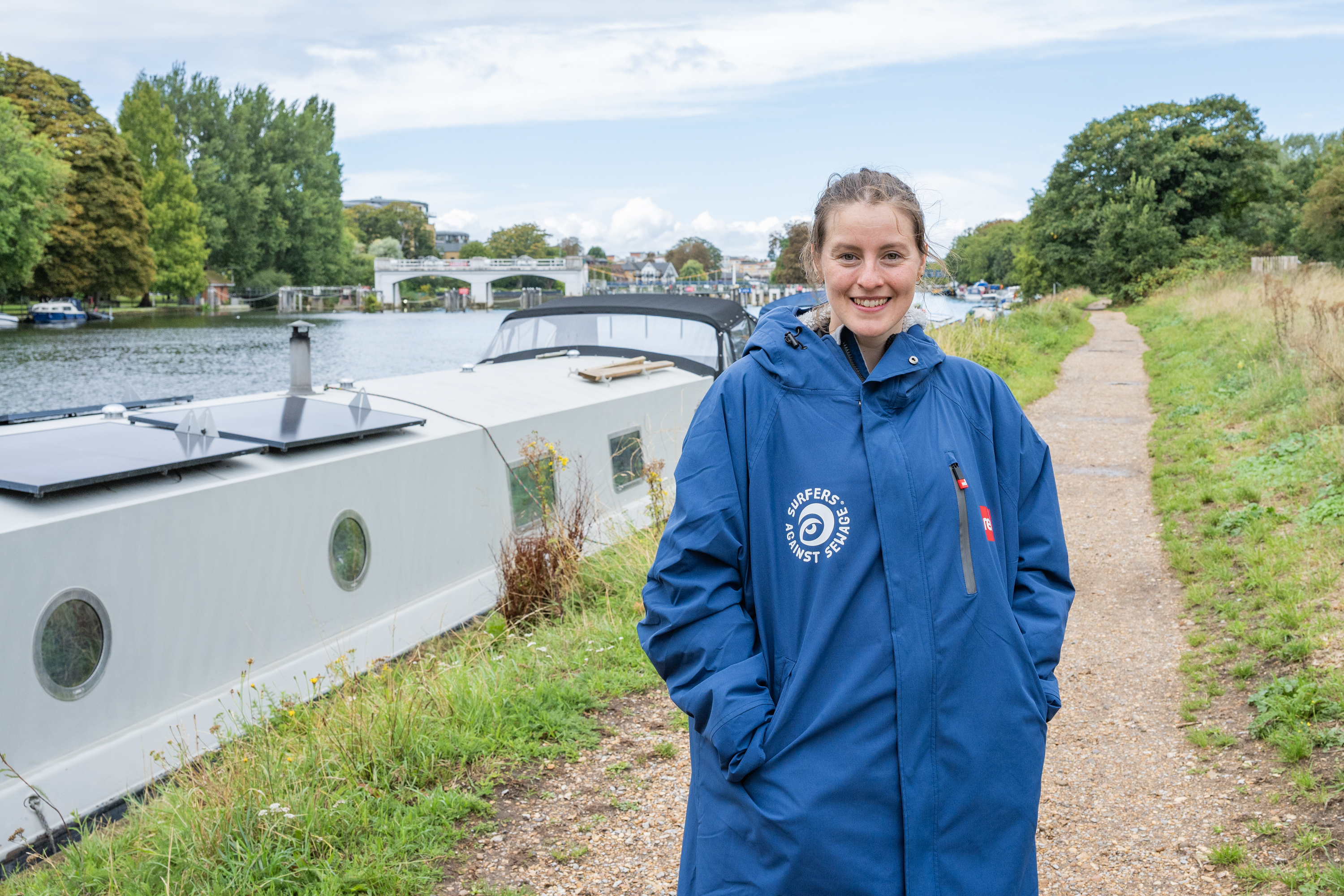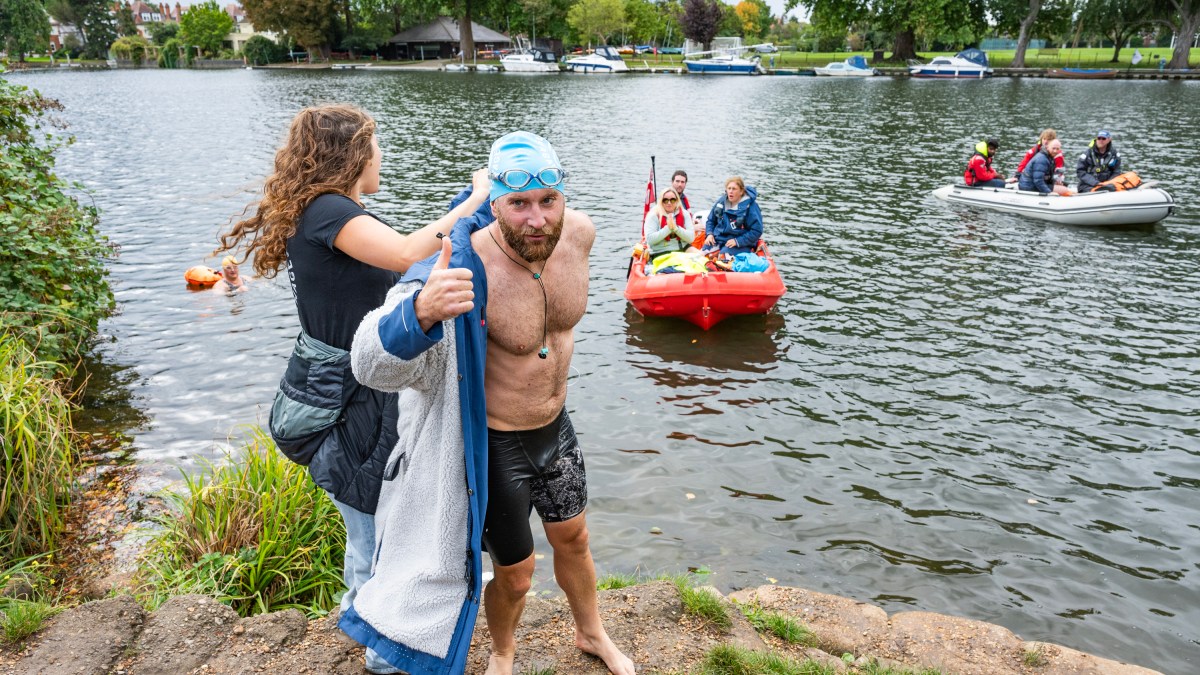A group of world-class swimmers who swam the Thames this week to raise awareness of river pollution had their challenge repeatedly interrupted by raw sewage.
The eight swimmers, who included Olympians and athletes from all four of the UK nations, arrived at Teddington Lock in southwest London on Thursday after covering 200 kilometres in a relay that started on Monday at Lechlade, Gloucestershire.
“It’s been incredibly difficult. There’s been moments doing this where I have not been sure that I’m going to finish the challenge,” said Amber Keegan, 28, who in 2024 became one of the fastest women to swim the Channel.

Amber Kidd, 28, was among the eight swimmers who took part in the challenge
VAGNER VIDAL FOR THE TIMES
During the challenge she got five hours of sleep each day at best, despite tiredness being linked to swimmers having a reduced tolerance to cold water. Physical pain was not the only obstacle. After an unusually dry summer, the group swam during repeated downpours, which can overwhelm waste capacity and trigger raw sewage spills.
Unlike most recreational wild swims, this one, organised by the charity Surfers Against Sewage, included a boat taking live readings of harmful bacteria such as E. coli and people checking online real-time data on sewage discharges.
At Henley, which is known as a hotspot for sewage pollution, the data was so concerning that the swimmers briefly hopped into the boat. Readings immediately after Henley showed E. coli levels at 150 times higher than the stretch just beforehand.
Between Marsh Lock and Hambleden Lock, a family including a young boy had waited on a pier hoping to get in the water and join the swimming expedition. But the water quality was so poor that the athletes were in the boat by then, leaving the family disappointed and unable to join.
Toby Robinson, 29, who competed in the 2024 Paris Olympics, estimated the team had been forced to skip about 15 kilometres of their route as a result of pollution concerns. “As we got closer to London there’s just much more debris in the water and I’ve been bumping into a lot more stuff,” he said. “The water changes colour. Towards the source it was greenish, but further down it’s changed to a more browny colour.”

Amber Keegan, Daniel Smyth and Toby Robinson all completed the challenge on Thursday
VAGNER VIDAL FOR THE TIMES
Apart from sore shoulders and a rash that Robinson and Keegan attributed to algae near the start, the group arrived in London without falling ill.
Robinson said he hoped the government could emulate the way French authorities cleaned up the River Seine for the Olympics, where three dedicated bathing waters have now been established. “Speak to the people [who] made that happen and learn the lessons we can apply to our rivers,” he said of his message to ministers.
Daniel Smyth, 18, a student and ultramarathon swimmer from Newry in Northern Ireland, said it was disappointing how much sewage there was in the Thames this week. “But it highlights what we’re doing [the swim] for,” he said. “It’s not safe to swim — and it should be.”
Experts said that while wild swimming was never guaranteed to be free of the risk of pathogens, there had been some progress in the Thames.

The team included Olympians and athletes from all four of the UK nations
VAGNER VIDAL PHOTOGRAPHY
Professor Mike Bowes at the UK Centre for Ecology and Hydrology, an independent research institute, said: “My message would be that the water companies were largely responsible for improving the [Thames’s] water quality in the late 1990s and early 2000s. But it has stagnated since 2010 and I would say sewage is still the major source of pollution.”
The government is preparing to publish a white paper this autumn on a significant shakeup of the water sector, which will include the abolition of the regulator Ofwat.
“This government has a once-in-a-generation opportunity to actually end sewage pollution for good,” Keegan said.
A government spokesman said: “We have introduced a new era of accountability. Through tough new laws, we have blocked unfair bonuses for water executives and polluting water bosses now face up to two years in prison. We are rebuilding sewage pipes to slash pollution levels in half with over £104 billion of private investment being spent to upgrade our crumbling sewage pipes.”

